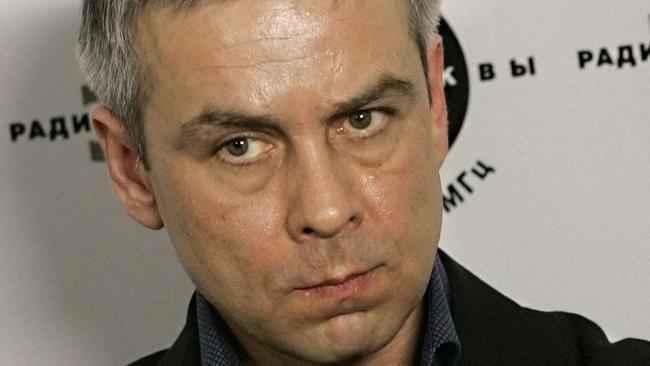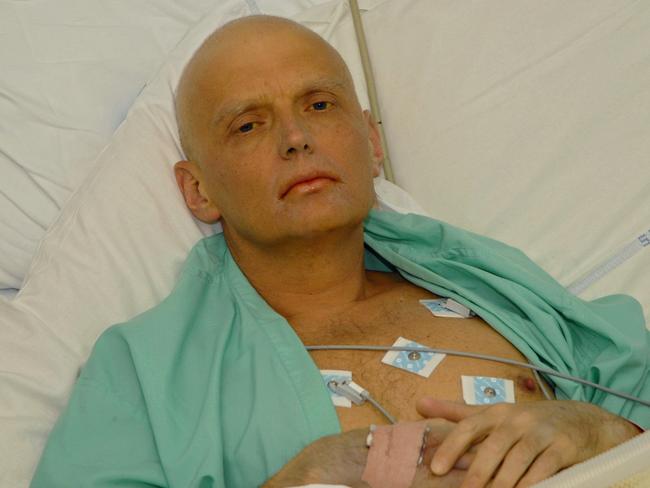Covid prevents Putin’s assassin Dmitry Kovtun from facing justice
Dmitry Kovtun was one of the two Russian agents who travelled to London with supplies of polonium-210 to clumsily murder Alexander Litvinenko.

Dmitry Kovtun Assassin.
Born Moscow, September 25, 1965; died Moscow, June 4, aged 56.
-
For two decades the most dangerous job in the world has been to oppose Vladimir Putin, and only very brave men and women have dared. Putin became Russian leader on New Year’s Eve 1999. His first act that day was to call off a corruption investigation into his predecessor, Boris Yeltsin. Such deals are how Putin’s world works.
All leaders collect enemies. It is a Russian tradition to murderously whittle down the list. Since the former KGB agent has been boss, his noisier opponents have been killed at an alarming rate. Among the first was investigative journalist and anti-corruption campaigner and politician Yuri Shchekochikhin, who became suddenly ill, probably by poisoning, and died in 2003; Sergei Yushenkov was gathering evidence about Putin’s possible connection to the Russian apartment bombings (which Putin used as the spark for the Second Chechen War) when he was shot dead the same year; the author of Putin’s Russia, investigative reporter Anna Politkovskaya, was shot dead in her apartment block lift in 2005 – five men were convicted of the $200,000 contract killing, but who paid for it was never discovered.
Then there was investigative journalist Natalia Estemirova, lawyer Sergei Magnitsky, human rights activist Anastasia Baburova, Politkovskaya’s lawyer Stanislav Markelov, Putin challenger Boris Nemtsov, and outspoken Putin critic Denis Voronenkov.
But the most famous of these killings was Alexander Litvinenko who was poisoned in London after claiming the apartment bombings had been orchestrated by Russia’s security services. Three years earlier, Shchekochikhin had made similar claims, and when Boris Berezovsky, a former Putin insider, accused the Kremlin of Litvinenko’s murder he was found hanged at his home.
This string of killings followed the publication of the book Blowing Up Russia: Terror From Within, written by Litvinenko and a friend, Yuri Felshtinsky. It claimed the bombings that killed 300 and injured more than 1100 were a false-flag exercise co-ordinated by the Russian Federal Security Service (FSB, the KGB’s successor) to be blamed on the Chechens. Putin was prime minister at the time, having months earlier left as FSB boss. Blowing Up Russia was also published in the independent Novaya Gazeta newspaper, which is part-owned by reforming former Soviet Union leader Mikhail Gorbachev. Seven of its reporters have been murdered since.
Litvinenko fell ill after a business meeting with Dmitry Kovtun and Andrey Lugovoy, childhood friends and former KGB agents who had gone into the security business after the collapse of the Soviet Union. Litvinenko knew there would be a price on his head as he was about to give evidence to a Spanish investigation into the Russian mafia’s activities there and probable links to Putin and his associates. Anyone wishing to prevent this needed to kill him in exile in London – and urgently. While an FSB agent himself in the 1990s, Litvinenko had written to Yeltsin and spoken to Putin about corrupt connections between it and Russian gangsters. According to the book Death of a Dissident, he told his wife later: “I could see in his eyes that (Putin) hated me.”

Kovtun and Lugovoy arranged several meetings with their one-time colleague at London’s Millennium Hotel, in Grosvenor Square, CCTV catching them arriving early and heading to the bathroom. The assassins find a table, sit there and order green tea that they do not drink, but that Litvinenko does. It is November 1, 2006. He has 22 days to live and will die in agony of multiple organ failure. The following day he became ill with symptoms of possible poisoning. This was later identified at polonium-210, an uncommon radioactive metal discovered by the legendary Polish-born chemist Marie Curie, hence its name. It is a by-product of some Russian nuclear technologies and uniquely poisonous in minute quantities. Traces were found in the Russians’ rooms, in the Millennium cafe, in the bathroom, and in the aircraft and cars the pair used to travel there. Russia refused to extradite them. In 2015, a British inquiry found that Putin probably knew about the plan. While it was under way, Lugovoy, who had been treated for radiation poisoning, and was by then an MP, was given a medal by Putin for “services to the motherland”. Litvinenko was buried in a lead-lined coffin. “Mr Litvinenko is, unfortunately, not Lazarus,” Putin said.
Kovtun died of Covid-19.
In 2011, a 3m bronze statue of former US president Ronald Reagan was unveiled in Grosvenor Square. Some words from a former Russian leader adorn it: “With President Reagan, we travelled the road from confrontation to co-operation. I join in the tribute to this remarkable man and salute him – Mikhail Gorbachev”.




To join the conversation, please log in. Don't have an account? Register
Join the conversation, you are commenting as Logout